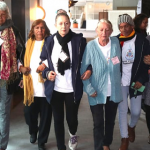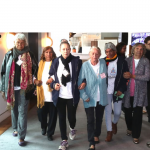New Gag Laws Will Make FACS Less Accountable

New laws are set to take effect this month that prohibit publishing the names of children and young people who are, or have been, placed in out-of-home care, or are under the parental responsibility of the NSW minister for family and community services.
Passed on 22 November last year, the Children and Young Persons (Care and Protection) Amendment Bill 2018 contains the new measures around publishing and broadcasting the identity of youth in foster care, as well as a number of highly-criticised forced adoption laws.
Liberal Party MLC Scott Farlow explained in the second reading speech on the bill that the new laws were in response to local and international research that “has shown that children can suffer stigma and distress when it becomes known that they are in or have been in out-of-home care”.
However, child welfare groups warn that the new measures will actually increase the stigma associated with being in out-of-home care, as well as make the NSW Department of Family and Community Services (FACS) less accountable.
These new gag laws have been passed following a high-profile case where a NSW Supreme Court justice ruled that publishing the fact that a widely recognised missing boy was in foster care at the time of his disappearance was of “legitimate public interest”.
The silencing measures
The amendment bill inserts new subsection (1AA) into section 105 of the Children and Young Persons (Care and Protection) Act 1998. It prohibits the publication or broadcast of a child’s name when it identifies that they’re in or have been in foster care and this information can be accessed in NSW.
This prohibition doesn’t apply to an individual once they reach the age of 25 or if they’re deceased. The maximum penalty for breaking this law is up to 2 years behind bars and/or a fine of $22,000 in the case of an individual, a $220,000 fine for a corporation.
The new measures also provide that the publication of an official report by either the Children’s or the Coroner’s court regarding a child who is or has been in out-of-home care is not prohibited under the legislation.
And a new subsection 105(3)(b)(iiia) provides that in regard to the suspected death of a child or young person who was in out-of-home care, the child’s name can only be published if the permission of the coroner is granted beforehand.
The laws contained under section 105 prior to the amendments only prohibited the publication of the name of any child or young person that links them to Children’s Court proceedings. The same penalties apply to this offence as do to the new crimes.
The right to know
In the past, FACS had asserted that the prohibitions pertaining to children in court proceedings also extended to preventing the media from revealing the names of children in the care of the state. However, two court rulings in 2017 revealed that this wasn’t the case.
In 2016, a child protection activist initiated a petition calling for a coronial inquiry into the well-known disappearance of a 3-year-old boy in this state. Subsequently posted on Facebook, the document outlined that the boy was in foster care at the time he went missing.
In response to the post, the FACS secretary sought an injunction to restrain the activist from further publishing information that conveyed the boy had been placed in foster care, was under the parental responsibility of the FACS minister, and was a ward of the state.
The activist fought the matter in the NSW Supreme Court in January 2017. And she won. Justice Paul Brereton found the reporting of this information was in the “public interest” and led to “accountability and scrutiny of the out-of-home care system”.
In August that year, the NSW Court of Appeal upheld this finding.
Hiding a dysfunctional system
The Newcastle Herald published a report last month on the 2012 disappearance of a 15-year-old girl in state care. The article – the publication of which would be a crime as of this month – had a focus on the lack of response from NSW police and FACS following the teen’s disappearance.
The investigation found that the police waited eight months before issuing a media release about the girl’s disappearance and her family members said it took months before officers got around to interviewing them about the matter.
In the case of the department, her family said that it downplayed their concerns over the girl’s disappearance, stating that she was bound to reappear. This case has now been referred to the state coroner, as it’s feared the girl may be dead.
Research released in April last year outlined that in NSW, agency responses to missing children, who are in out-of-home care actually endanger and criminalise these kids. And this accelerates their involvement in the criminal justice system, as well as threatens their safety.
Forced adoption laws
The amendment bill containing the new gag laws involving children and young people in out-of-home care also created a range of new laws in relation to the adoption of these kids.
These laws include that a decision must be made within 24 months as to whether a child in out-of-home care can be restored to their family, otherwise they should be put up for adoption. And it’s no longer a requirement that the Children’s Court make a formal ruling on the possibility of restoration.
The new measures also make it easier for the court to dismiss a request from a child’s family for a care order to be varied or revoked.
The ongoing stolen generation
These new laws are set to set to disproportionately affect Aboriginal communities that are facing a system that’s increasingly removing their kids. First Nations children and youths make up only 5 percent of people under 18 in this state, but 37 percent of young people in out-of-home care.
In June 2017, there were 6,824 Aboriginal children in out-of-home care in NSW, according to the 2018 Productivity Commission report. And these new gag laws are set to silence any discussion in the media about specific cases relating to Indigenous children in state care.
As founding member of Grandmothers Against Removals Aunty Hazel Collins told Sydney Criminal Lawyers® just prior to the passing of the new laws, “This is going to totally annihilate Aboriginal culture. This is genocide in the first degree and it should be abolished.”








